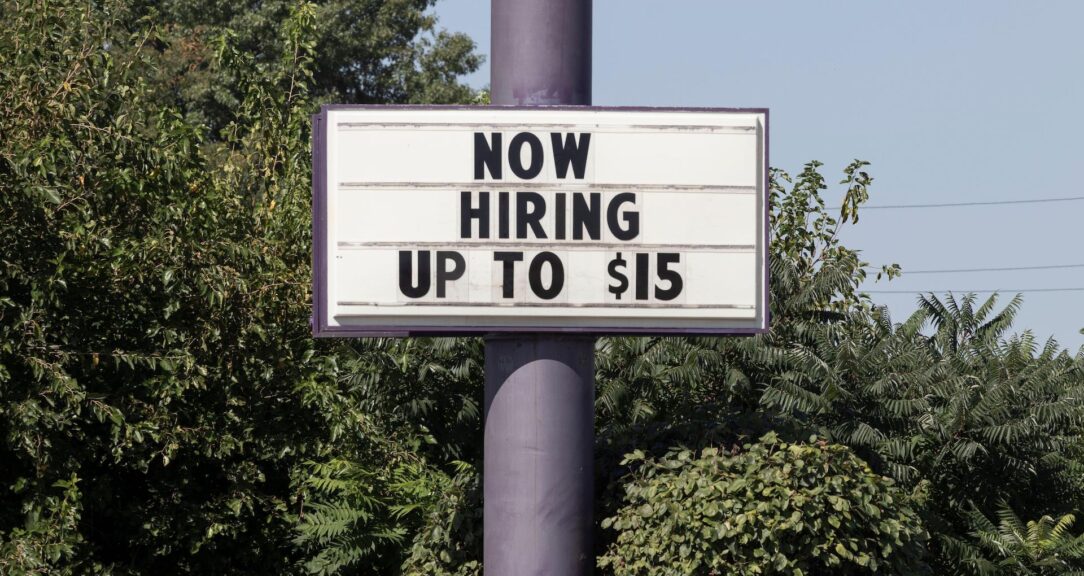“The time has come for universal basic income.”
Yannick Vanderborght
There’s a fear that a universal basic income would create a mass exodus of people going off to become a surfer in Malibu. But we underestimate the fact that most people like having a sense of purpose and feeling productive. What is problematic is the lack of freedom and the stress caused by living paycheck to paycheck.
We can and should trust people to do something valuable with their basic income, especially if it is introduced gradually, starting with an amount that is not higher than the current minimum income. That way, it gives people financial power and more freedom — it can help a student finance their studies or allow someone to temporarily exit the labor market to focus on training or care for a child or relative — but does not actually encourage a permanent exit from the labor market.
We are currently experiencing a tight labor market across the globe. The global pandemic, along with an aging population and early retirements, has created a labor shortage in many industries. This means that we’re already seeing some of the labor effects anticipated by UBI advocates. With a guaranteed income in the form of a UBI, workers would get more bargaining power, working conditions and wages could improve, and the economy would not collapse. The long-term benefits of such a development are that people will have more freedom to dedicate themselves to training, upskilling and care work, which are all necessary to keep our economy running. They will also have more time for leisure and the possibility to develop a more positive relationship with their workplace, since they have potentially more freedom in their choice of occupation.
Funding a UBI would be less socially divisive than the funding of some welfare programs, since everyone would theoretically be able to rely on a basic income at some point in their life, as opposed to social assistance that is only used by certain people but funded by all. People who don’t need a basic income now — even if they’re also receiving it — but who are still contributing towards its funding through taxes have the option to make use of it if they want to take a sabbatical, switch jobs or take time off for care work.
A UBI would also eliminate some of the bureaucracy associated with social services and welfare. In a basic income society, everyone’s core needs are covered — at least in part — by UBI. This frees up many resources that would otherwise be used to ensure people receiving welfare comply with the conditions attached to that government support. Social workers, for example, could devote more time to helping people get out of addiction or assisting struggling families, instead of spending valuable time controlling and monitoring aid recipients. In many places there is a social stigma attached to being a welfare recipient; UBI would be free of such stigma because it is a universal benefit.
The positive, long-term social benefits of a UBI would build trust not only in the system but also in the people receiving a basic income. I predict that a universal basic income would create a long-term positive impact, as recipients use their basic income to expand their skill sets, pursue their interests, and take care of the neediest in our society. People would be able to improve their lives and create a positive contribution to the future while not exiting the labor market prematurely due to burnout. UBI would take the strain off government services and reduce the stigma attached to receiving assistance. Although a UBI is no magic bullet, it is an essential ingredient for a free society and a sane economy.
“UBI is too expensive and unproven.”
Greg Wright
Universal basic income is an ambitious policy that would require a strong degree of social acceptance in order to work. There are a lot of valid concerns about the feasibility, sustainability and efficacy of such an undertaking.
One of the main concerns with any policy that supplements income, including UBI, is that a subset of workers may drop out of the labor force. Whether this is good or bad for the economy and for society is difficult to know. For many people, dropping out of the workforce has been shown to have overall negative consequences. For instance, job losses during recessions have historically led to a rise in opioid deaths and abusive behavior. And while those examples refer to involuntary job losses, a lack of employment and purpose — even if voluntary — can still have unintended social consequences.
At the same time, there are many people who should be working less. For instance, people who have childcare and eldercare responsibilities but have a hard time balancing those duties with the demands of their jobs. Without major policy reforms to shore up the care industry, broad-based income support could serve as a second-best solution.
This example highlights one of the core objections to UBI, which is that it is an enormously costly, second-best solution to problems that could be addressed with more targeted, less expensive policies. Child poverty would clearly be reduced with a UBI program, as parents would have additional time and money to support their families.
But this is a policy objective that we already know how to meet: When the U.S. child tax credit was extended due to the pandemic, child poverty fell dramatically to a historic low of 5.2% in 2021. But after the extension expired, rose to 12.4% in 2022. The cost of keeping the extension long-term would be about $222 billion per calendar year, as opposed to the current cost of $126 billion.
But the main barrier to universal basic income is almost certainly political. How willing are taxpayers to face the costs of UBI? Research shows that, for the U.S., most of the benefits from a truly universal income supplement would go to middle-class, rather than poor, households. As a result, it would be extremely costly to dramatically increase the incomes of poor households through this type of policy.
This also highlights a Catch-22 when it comes to achieving broad political support for UBI: If the program is not universal enough, so that not all people have a stake in it, then the constituency that is served by the policy may be too small and may possess too little political influence. But if the policy is truly universal, then it may become too costly to garner sufficient support.
Instead of diverting resources toward a universal basic income policy whose effects are largely unknown, it would make more sense to apply resources toward targeted forms of aid that we know work from experience and research. We need to do more to support families, expand the availability of childcare and eldercare, scale up opioid addiction programs, and create support programs for people struggling with the changing nature of work, among many other policy goals. There are a variety of targeted policies that we know are effective in each of these cases.
What do you think? Join the debate by letting us know your thoughts.
Read more
Sign up to keep up to date with ReThink Q.








